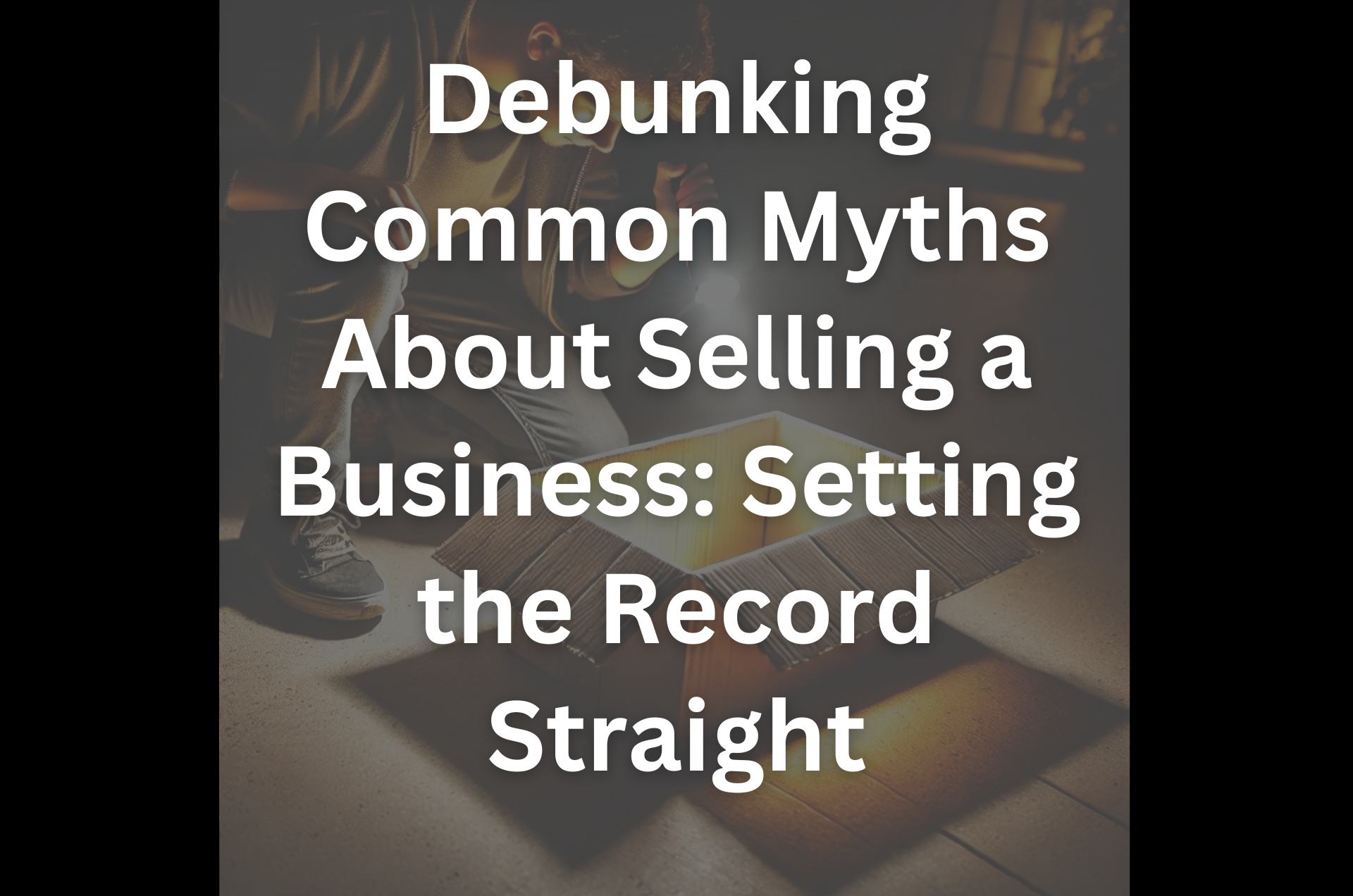**Disclosure:** We believe in honesty and transparency to the fullest extent. Some of the links on this blog are affiliate links, meaning, at no additional cost to you, we will earn a commission if you click through and make a purchase. This is one of the simplest ways you can support us.

Selling a business can be a daunting task, filled with misconceptions that often cloud judgment and lead to misplaced expectations. To help potential sellers navigate this complex process with confidence, it’s essential to separate fact from fiction. Below, we debunk some of the most prevalent myths about selling a business and provide the reality behind them.
Myth #1: You Can Sell a Business Overnight
Reality: Selling a business is far from an overnight process. It involves multiple stages, including valuation, finding the right buyer, negotiating terms, and handling legal and financial due diligence. On average, it can take several months to even years to finalize a sale. Patience and strategic planning are key to securing the best deal.
Myth #2: A Business is Worth What the Owner Thinks It’s Worth
Reality: Valuing a business is a complex task that goes beyond the owner’s personal assessment. Factors such as cash flow, industry trends, market conditions, and comparable sales all play a critical role in determining a business’s true value. Professional valuation services can provide an objective analysis, ensuring that the business is priced appropriately for the market.
Myth #3: You Don’t Need an Exit Strategy Until You’re Ready to Sell
Reality: An exit strategy should be an integral part of your business plan from day one. Having a well-thought-out exit strategy ensures that when the time comes to sell, the process is smooth and maximizes value. It allows you to prepare for potential buyers, optimize business operations, and plan for tax implications well in advance.
Myth #4: The Best Time to Sell is When Profit is at Its Peak
Reality: While profitability is a significant factor, it’s not the sole determinant of the right time to sell. Market conditions, industry trends, and personal circumstances are equally important. Sometimes, selling during a growth phase or when industry interest is high can be more advantageous than waiting for peak profitability.
Myth #5: You Should Only Sell to a Competitor or Industry Insider
Reality: While competitors or industry insiders may seem like obvious buyers, they’re not the only options. Private equity firms, investment groups, and even individual entrepreneurs are often in the market for new opportunities. Broadening your pool of potential buyers can lead to better offers and terms.
Myth #6: Confidentiality Isn’t a Big Deal When Selling a Business
Reality: Maintaining confidentiality is crucial throughout the selling process. If word gets out prematurely, it can cause unrest among employees, alarm suppliers, and even prompt competitors to exploit the situation. Discreetly managing the sale helps protect the business’s value and maintains stability during the transition.
Myth #7: You Can Handle the Sale on Your Own to Save Money
Reality: Selling a business involves legal, financial, and negotiation complexities that are best handled by professionals. While it may seem like a cost-saving measure to go it alone, the risks of undervaluing the business, overlooking legal requirements, or mishandling negotiations can far outweigh any potential savings. Engaging a broker, lawyer, and accountant ensures a smoother process and often results in a higher sale price.
Myth #8: If the Business is Good, It Will Sell Itself
Reality: Even the most successful businesses require a proactive marketing approach to attract the right buyers. A targeted strategy, highlighting the business’s strengths and potential for growth, is essential to generate interest and secure a favorable deal. Relying solely on the business’s reputation or performance isn’t enough.
Myth #9: Due Diligence is the Buyer’s Concern
Reality: While buyers conduct due diligence to verify the business’s financial health and operations, sellers need to be equally prepared. Providing accurate and comprehensive information helps prevent delays, builds trust, and minimizes the risk of post-sale disputes. A thorough pre-sale audit can also highlight areas for improvement, potentially increasing the business’s value.
Myth #10: Once the Sale is Final, You Can Move on Immediately
Reality: In many cases, the sale of a business includes a transition period where the seller stays on to assist the new owner. This period can last from a few months to several years, depending on the terms of the sale. Understanding and planning for this transition period is crucial to ensure a smooth handover and continued business success.
Conclusion: Setting Realistic Expectations
By debunking these common myths and providing clear, factual information, you can better prepare yourself for the complexities of selling a business. Understanding the realities of the process will not only set realistic expectations but also help you achieve the best possible outcome when it’s time to sell.










